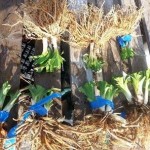WE ARE A BREEDING FLOWER FARM PRODUCING LILY & DAYLILY SEEDS & PLANTS FOR GARDENERS, ARTISTS & HYBRIDIZERS
Set in the beautiful Lake Diefenbaker area of west central Saskatchewan, Canada, Lilyfield Farm brings forth endless creative joy from an environment explorer John Pallisar suggested was semi-desert and “which can never be expected to become occupied by settlers.”
Our main plant health breeding goals include drought-tolerant hardy plants that can withstand the short growing season of the prairies, the harsh Canadian freeze-thaw cycles as well as resistance to disease in those infrequent but devastating wet years. Aesthetically our goals include unusual flowers that exhibit new traits, tall plants suitable for large gardens and clear colours.



The seed of Lilyfield was born out of the desire to add a horticulture stream to our grain and cattle operation. There is a real need in Canada for hardy perennial plants to be produced in the same climate as the gardens they will eventually be grown in.
We create varieties suited for any size of garden, from a narrow city sidewalk border to large landscapes. Our special goals include plants befitting extensive garden spaces. Glowing cream yellow Prairie Elevator is a tall daylily that requires no bending over to smell the flowers and lavender pink Fadeaway Girl stands above her companion plants.



Joyce Strohman at the Lily Nook in Neepawa, Manitoba was helpful at the beginning of the growing journey. Her production information from a phone call is still tucked away in a notebook, I don’t wonder why she was so free with sharing how they do things, it is good work.
In that early time, Dolores Nelson, a leader in the North American Lily Society and the South Saskatchewan Lily Society offered an invitation to join them in Regina for a lily judging seminar led by Eugene Fox. There, expressing a goal to grow lilies and make them available to others, Eugene cautioned that it was hard work, while at the same time sharing his experiences of growing martagon lilies in Alberta.
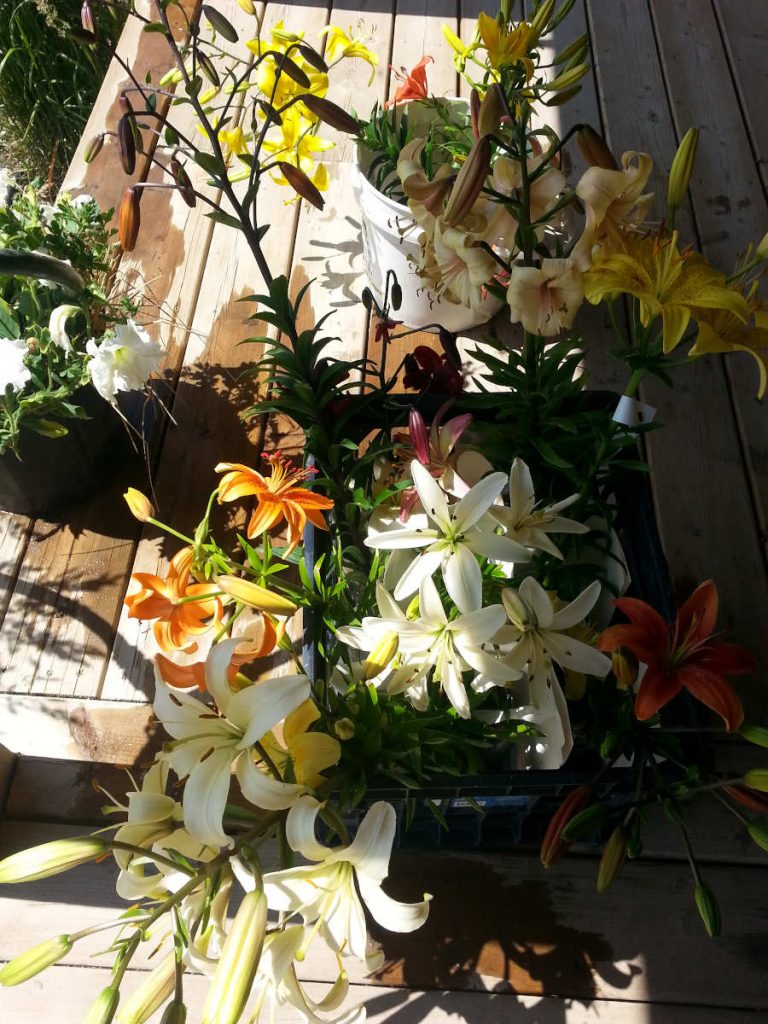
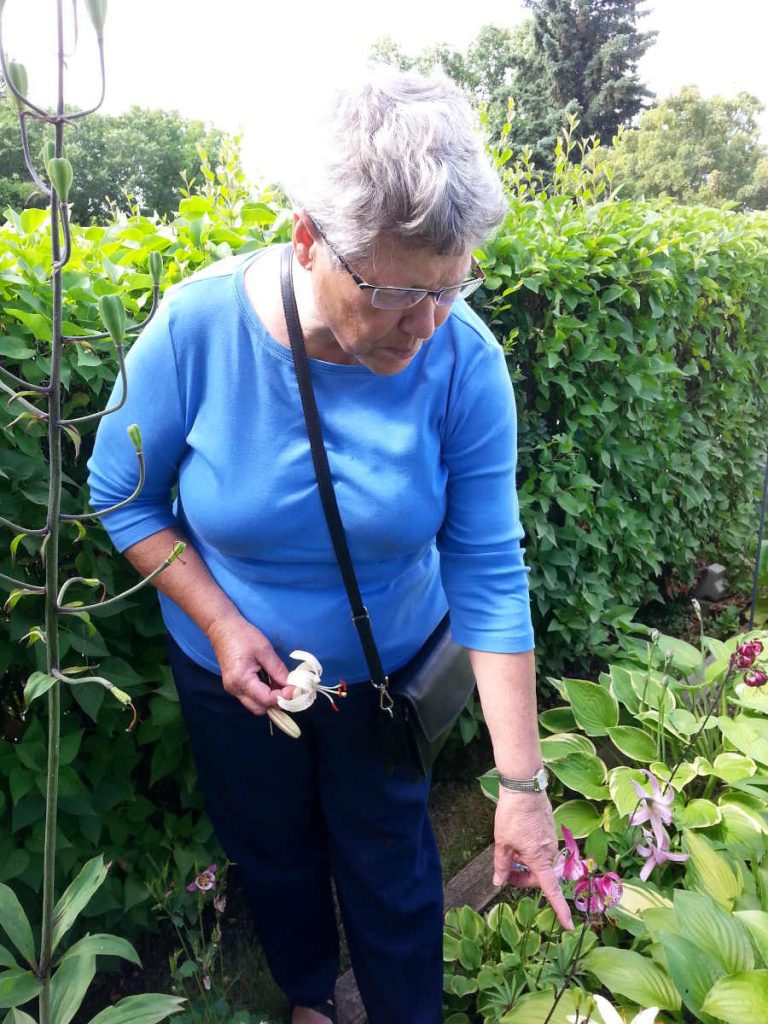
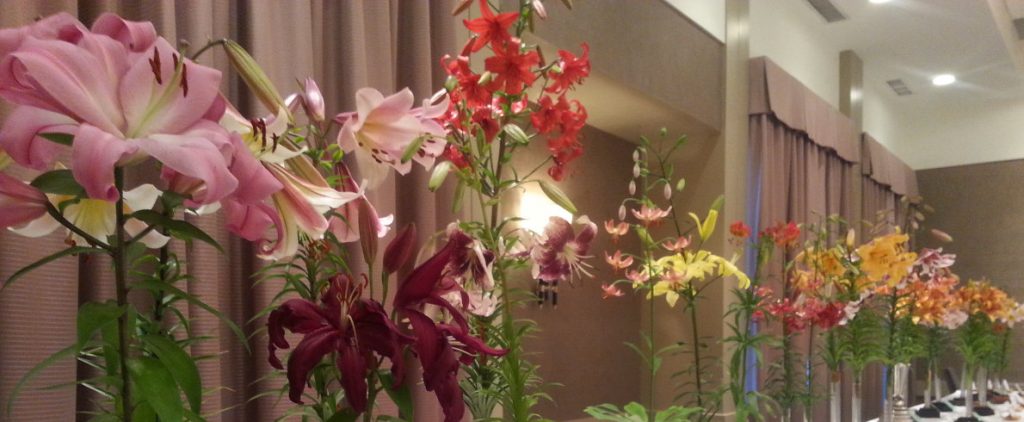
Breeding and selling came hand in hand, contemplating a white lily stem brought in from the garden, confirmed the challenge to solve the problem of creating improved garden varieties for our extreme climate, as well as accuracy in representation of the plant material, all the while growing a sustainable independent breeding flower farm.
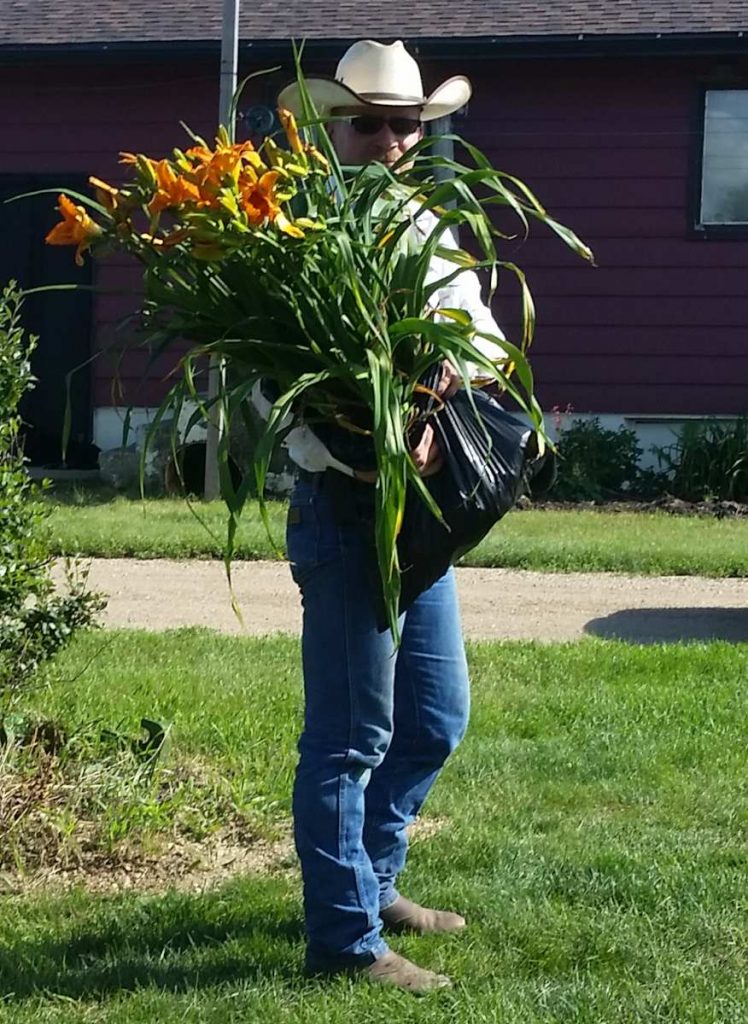
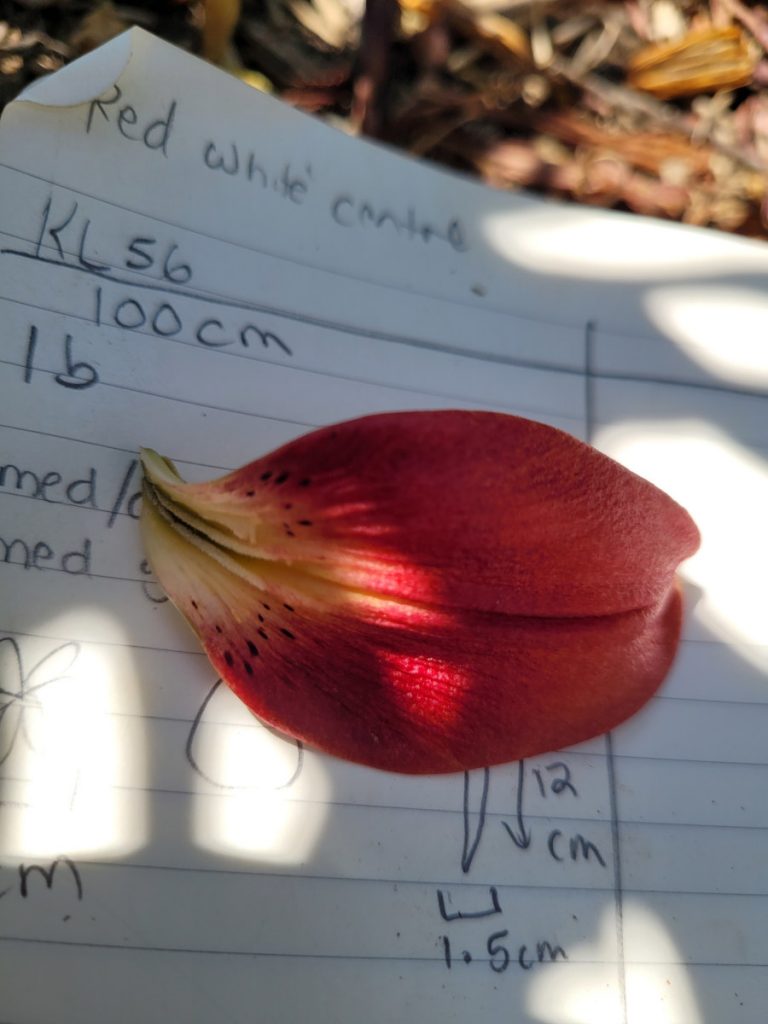
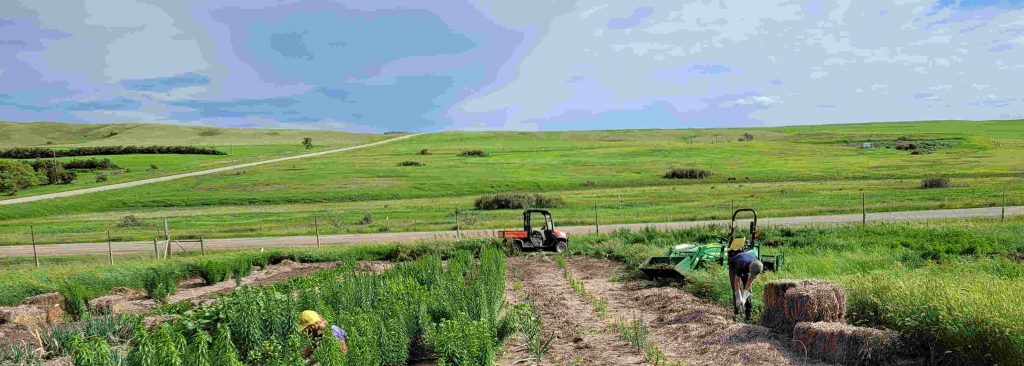
2016 was the introduction of Lilyfield’s first original daylily varieties and in 2020, our first original lily varieties. It took several years from seed to final selection and multiplication before these special plants were made available to our fellow Canadian gardeners. In 2023, the first sunflower, lily and onion bloom cut flowers were made available.
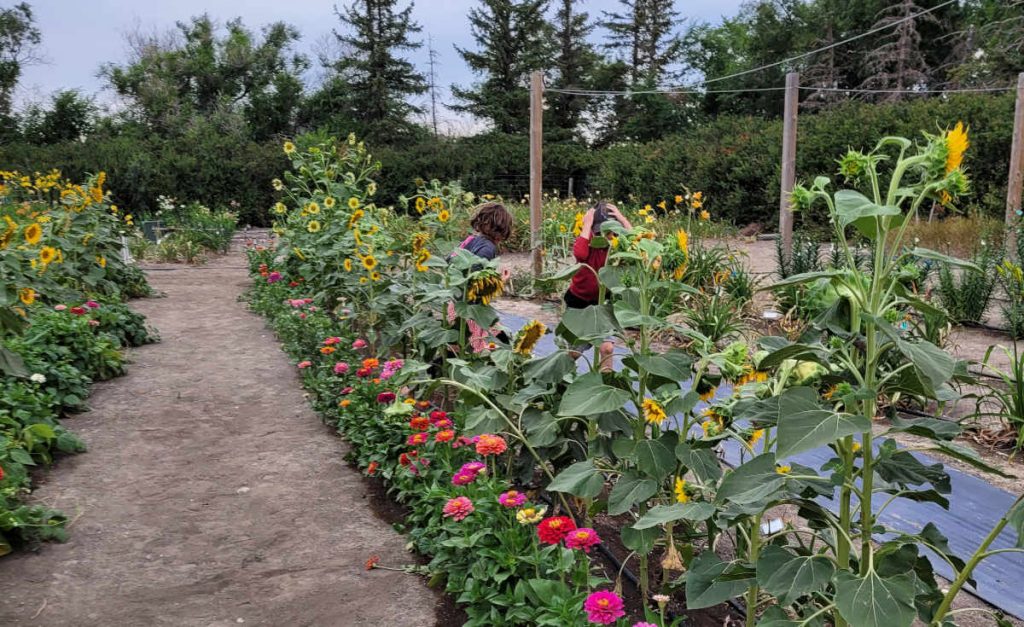
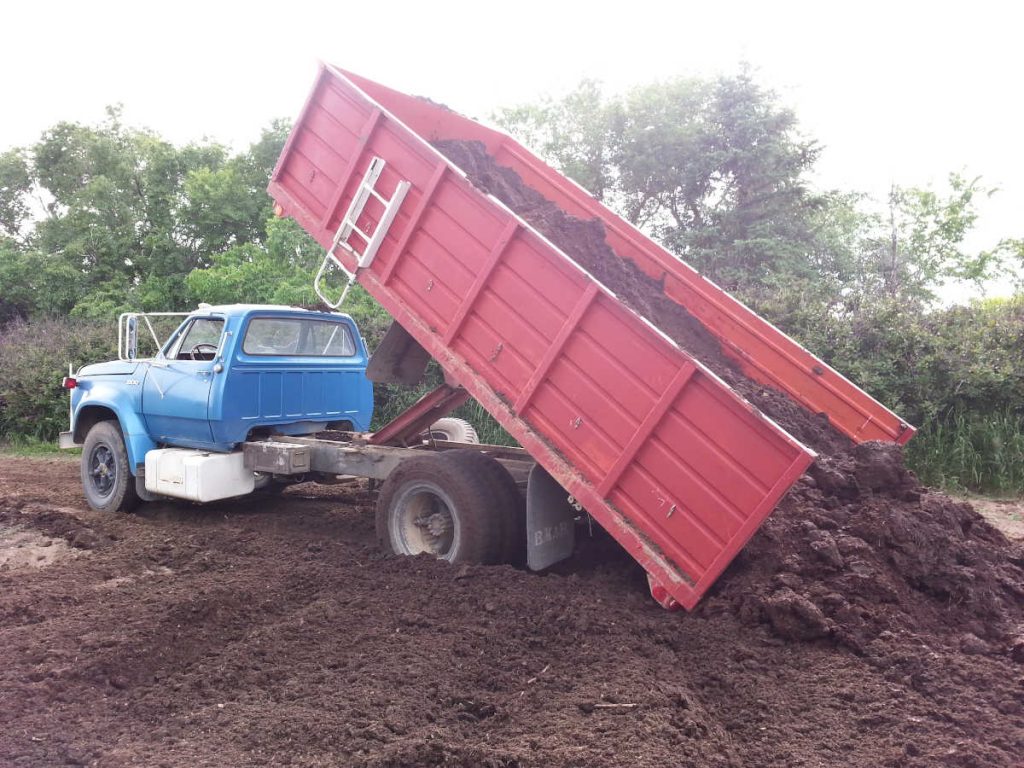

Lilyfield stands on the shoulders of the hybridizers before, many of them from the prairies, specifically Fred Fellner, a retired farmer who never really retired, he kept breeding lilies and sharing them. Lilyfield benefited from other growers including Lynette Westfall of Valley K Greenhouses for a source of Canadian bred lilies, and Diann Putland of Hillcrest Harmony Flowers.
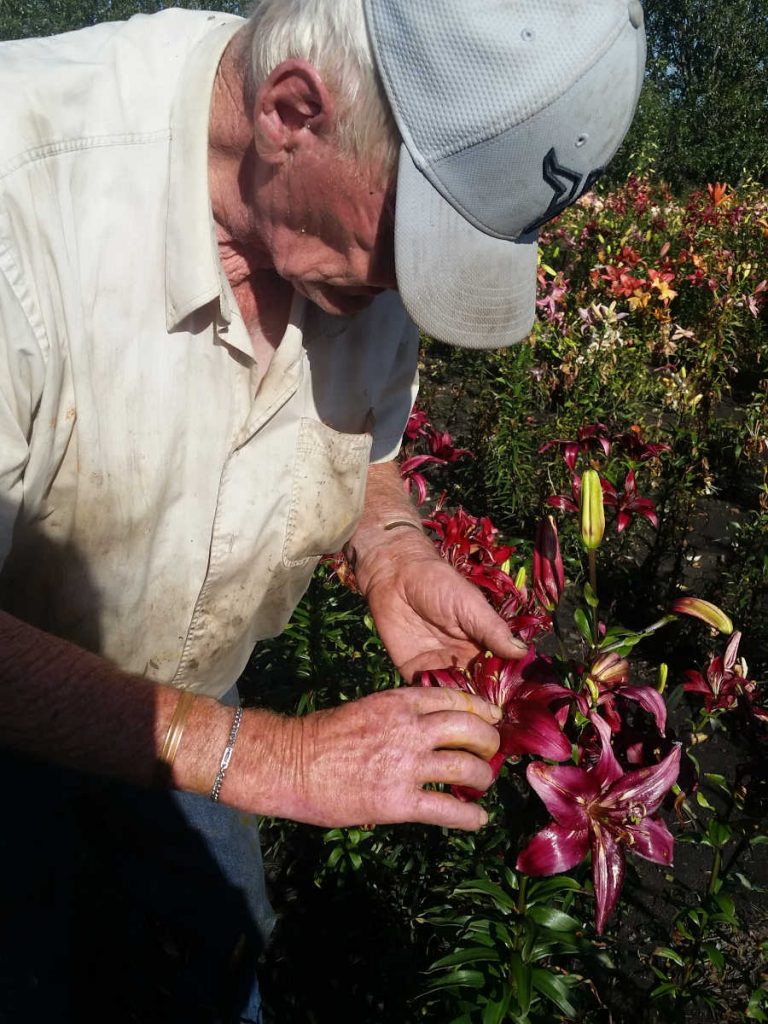
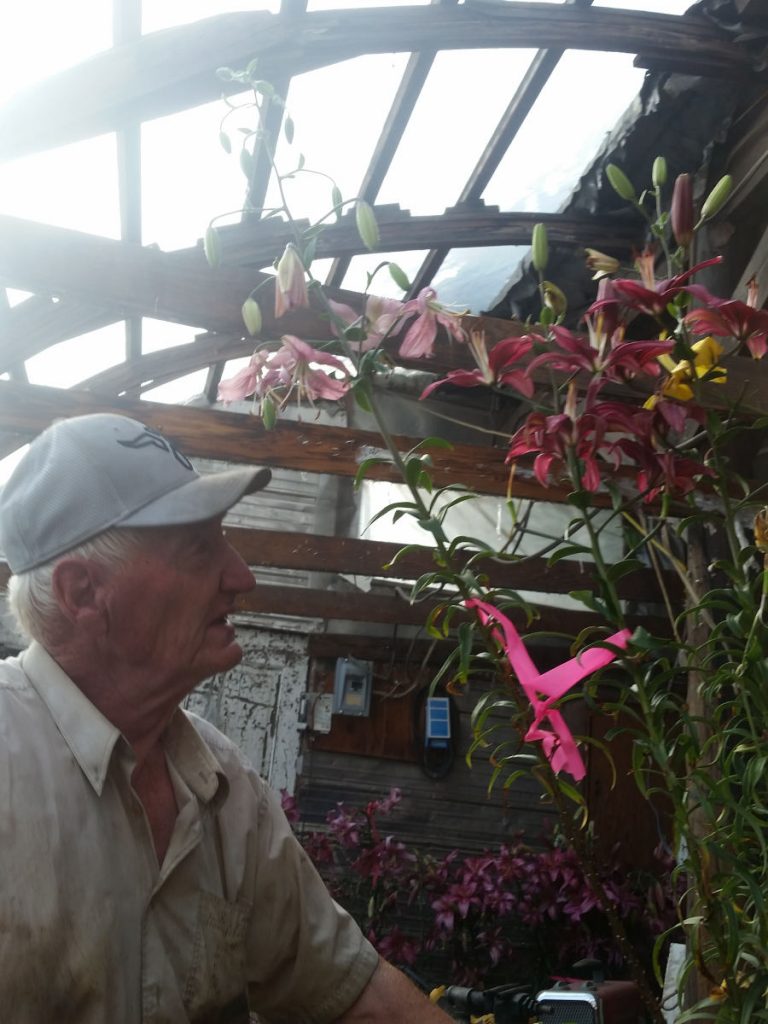
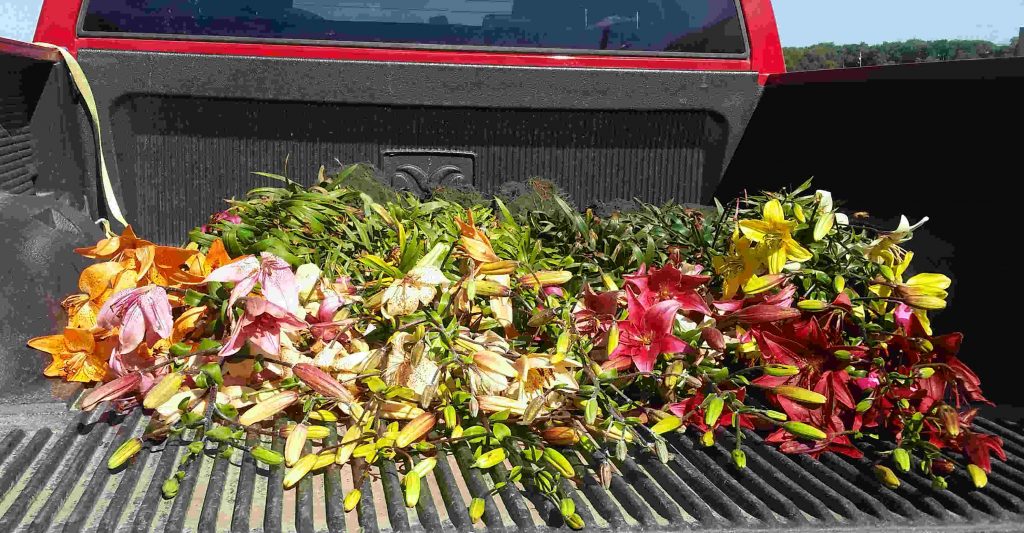
Being a part of a mixed farm has been a privilege, a huge amount of practical knowledge translates into growing flowers. Disease in lentils? It will be in the lilies as well, take steps to control it. Frozen canola in May? Don’t worry, like canola, the daylilies will be mush and still regrow. Need to improve the soil? Composted cattle manure does the trick.
The best has been the help and encouragement of family, friends, and visitors, who take the time to drive out to the middle of nowhere and see these special flowers. The human experience adds value to this creative project.
We look forward as we do our best to improve the hardiness, beauty and overall quality of perennial plants available in the Lake Diefenbaker area and across Canada.
ABOUT



We offer varieties that are good performers in our climate. The harsh winters kill off the less hardy. Plants that have poor foliage, few blooms or ugly, non-opening blooms are composted. We try them, so you don’t have to.
Cheryl is an accredited judge with the North American Lily Society.
Member of the South Saskatchewan Lily Society, Canadian Prairie Lily Society and American Hemerocallis Society.
Cheryl has a Diploma in Vocational Agriculture and a Prairie Horticulture Certificate from the University of Saskatchewan.
GUARANTEE
We guarantee the roots and bulbs to grow and bloom for you because we grow them all ourselves at Lilyfield.
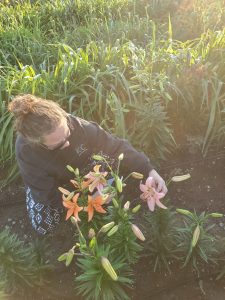
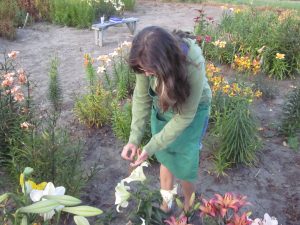
We ship blooming size bulbs and fans.
SHIPPING
Lilyfield Farm ships via Canada Post. Daylily roots ship in spring, bareroot. Lilyfield introductions may be single to triple fan, the rest will be double fans. Lily bulbs ship in fall.
Shipping within Canada only.
PAYMENT
The inventory automatically updates. If we cannot fulfill an order, the money will be refunded.
Paypal and credit cards are accepted in the checkout.
E-transfer is accepted. We will ship once it is received.
Cheques and money orders are payable to Cheryl Siemens. We will reserve your plants for two weeks pending arrival of your payment by cheque.
Mail to:
Cheryl Siemens
PO Box 57
Lucky Lake, SK
S0L1Z0
WHAT TO EXPECT IN YOUR DAYLILY ORDER
We dig your daylilies, wash the plants with plain water, trim the foliage and roots to relieve a bit of transplant stress, wrap them in paper with a label and ship them within that day or the next.
Planting instructions are included in the box.
One thing to keep in mind that if the plants are in the mail to for a week, they will likely yellow and die back a bit. Wait it out, if they are cared for and watered they should bounce back with new healthy foliage.
WILL THEY BLOOM THE YEAR THEY ARE PLANTED?
The experience here is that the shorter time they are out of the ground, the more likely they are to bloom the first year. When plants arrive at Lilyfield that have been in the mail for a week, about 40% of them bloom that same year.
We would appreciate your feedback on how they do their first year.
DAYLILY ABBREVIATIONS IN THE CATALOGUE
Example: 28″,Tet,5″,SEv,ML,Frag,Ext These are the registered descriptions with the American Hemerocallis (Daylily) Society
28″ This plant is 28 inches tall from the base to the top of the scape (flower stalk).
Tet or Dip Daylilies are classified as tetraploids and diploids. It is the chromosome count. There are plants that are somewhere in between. Useful for hybridizing. Tetraploids generally have thicker scapes and foliage.
5″ The flower size in diameter, measured across the face.
DOR,SEV,EV Denotes the type of foliage, Dormant, semi-evergreen, evergreen. Dormants and many semi-evergreens do well here. Not to many evergreens thrive in this climate.
EE,E, EM denotes early bloom season. M means it blooms mostly mid-season, ML, L means later bloom season.
Frag means fragrant.
Ext means extended bloom, flowers remain open for more than 16 hours.
Noc, nocturnal means flowers start blooming in the evening, great for having a wide open bloom as you walk your garden in the morning, coffee in hand.
Diu, diurnal most daylilies fall into this category. Day-blooming.
RE Rebloom. Most daylilies that say RE, do not rebloom at Lilyfield. They rebloom in the climate that they were hybridized in, for example Florida or Tennessee. If they rebloom at Lilyfield, we make a note of it in the written description. Some that do rebloom here, are often from breeders closer to our climate. Yellow Lollipop will usually rebloom in zone 3.
